Aimee Willmott Recalls The Doubts And Dread Of 2020 On The Eve Of British Trials
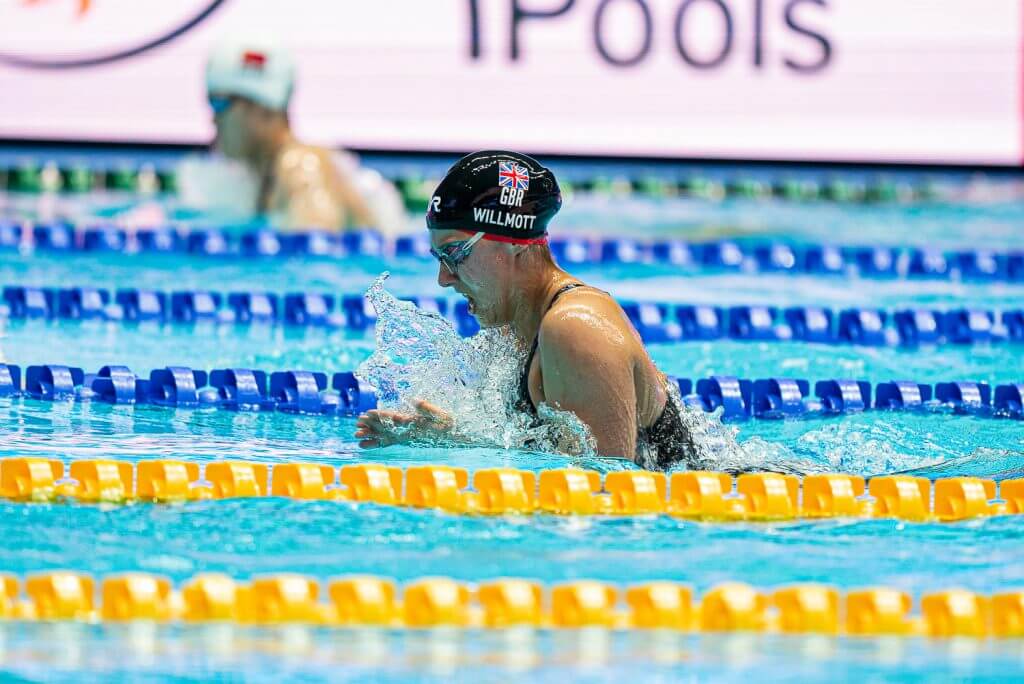
Editorial content for the 2021 Tokyo Olympic Games coverage is sponsored by GMX7.
See full event coverage. Follow GMX7 on Instagram at @GMX7training #gmx7

With trials season well under way, eyes now turn to the London Aquatics Centre and the British Championships.
Already we’ve seen history rewritten in European waters by Evgeny Rylov and Kira Toussaint while the likes of Kristof Milak and Kliment Kolesnikov promise something very special come Tokyo.
So too Gregorio Paltrinieri and Florian Wellbrock and their double-pronged attacks on pool and open water.
Look to Asia and you see Shoma Sato go second all-time over 200 breaststroke in 2:06.40.
To the USA and Katie Ledecky’s exploits in Mission Viejo – which included a morning swim of 1:54.40 in the 200 free – hinting at a very real possibility of a 200-400-800-1500 sweep.
South Africa and Tatjana Schoenmaker and four African records.
GB Trials Head To Olympic Pool
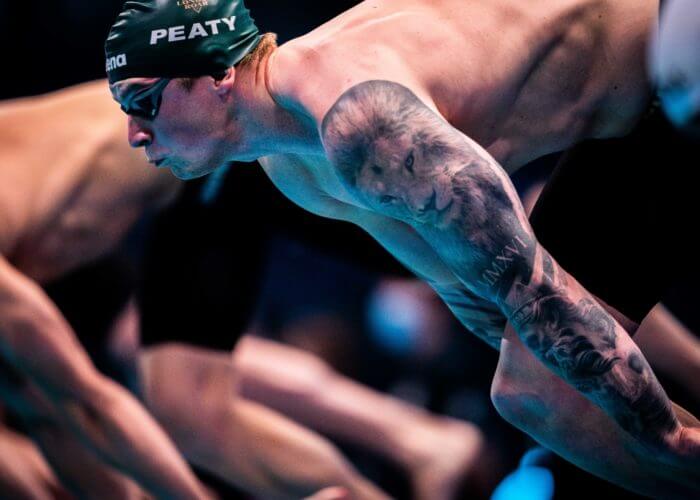
Photo Courtesy: Mine Kasapoglu / ISL
Now it’s the turn of the British athletes to book a slot on Team GB for Tokyo on which Adam Peaty, James Wilby, Duncan Scott and Luke Greenbank have been named with the quartet all individual medallists at the 2019 World Championships in Gwangju.
The event is going ahead as the British Swimming Selection Trials with a vastly-reduced programme.
It was reduced in length by one day to run from Wednesday 14 to Sunday 18 April with the junior-specific element removed and numbers limited.
The 800 and 1500 free will be heat-declared winners.
Put simply, should swimmers come in the top two of races and equal or better the qualification times – linked to here – then they will be considered for nomination to Team GB.
Should swimmers not qualify in London, then there will be further opportunities at next month’s European Championships in Budapest or at designated meets in May/June.
There will also be selections made at the “complete discretion” of the head coach Bill Furniss and national performance director Chris Spice.
The spotlight on day one will fall on the fourth event of the session where Olympic champion Peaty takes to the water almost six years to the day since he broke his first 100br world record.
It was in lane four of the very same pool that he became the first – and still the only – man to break the 58sec barrier when he went 57.92 on 17 April 2015.
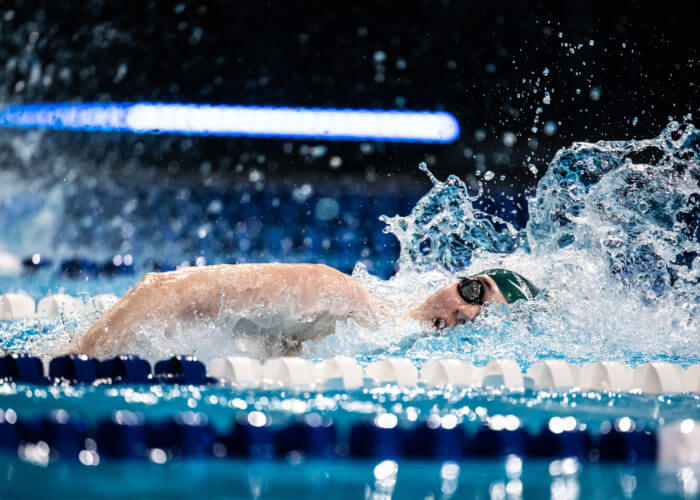
Freya Anderson: Photo Courtesy: MIKE LEWIS / ISL
Wilby is the joint fifth-fastest man in history in 58.46 – alongside London 2012 champion Cameron van der Burgh – as he swam to silver behind Peaty in Gwangju.
Freya Anderson heads the entries for the 200fr ahead of Abbie Wood who has continued her ISL form in the long-course pool at the two British Swimming Meets in Manchester in February and March.
Dan Jervis and Tom Dean meet in the 400 free, Alys Thomas heads up the 100 fly with 0.65 separating the swiftest four entries while Scott will have his first outing of the meet in the 200IM.
Another race midway through the session that takes the eye is the women’s 400IM featuring Aimee Willmott and Hannah Miley, a duo who have been among Britain’s most loyal, consistent athletes for over a decade.
Between them they have reached four Olympic finals and visited world and European podiums.
Willmott won the 2018 Commonwealth 400IM title, one place ahead of Miley who topped the rostrum at the previous two Games.
Miley is 31 and Willmott 28 and neither are on funding but the pair head the entry lists for the eight-length event ahead of Michaella Glenister, the 2019 world junior bronze medallist who – like Willmott – trains at the University of Stirling but is at the start of her senior career.
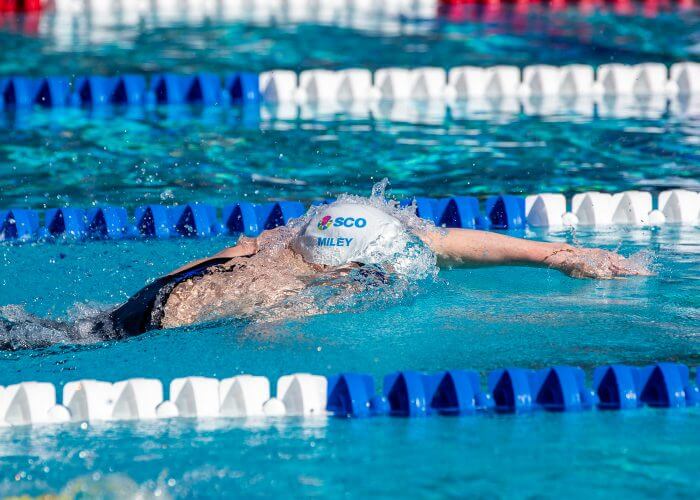
Photo Courtesy: Connor Trimble
For Miley it would be a fourth Olympics, the Scot having reached the 400IM final at each previous appearance with fourth at Rio 2016 0.15 behind bronze-medal winner Mireia Belmonte the nearest she has been to the podium.
Willmott made her Olympic debut at London 2012 where she finished 11th before seventh place four years later in Rio.
Willmott went 4:39.11 at the British Swimming Invitational Meet in Manchester in March although little is known of Miley in 2021 with 4:36.68 the cut for Tokyo.
The final will be contested during the first evening session.
It has been a year of uncertainty, acceptance and adjustment for Willmott who had planned to retire last year after Tokyo only for the Games to be postponed.
When the number of coronavirus cases began to rise steeply once more prompting a nationwide lockdown across Britain in the New Year, Willmott had a feeling of dread that the Games would again be postponed or even cancelled.
“Please don’t happen again,” she thought even though the unthinkable had already transpired once and could again.
Willmott’s Plans Thrown Into Disarray
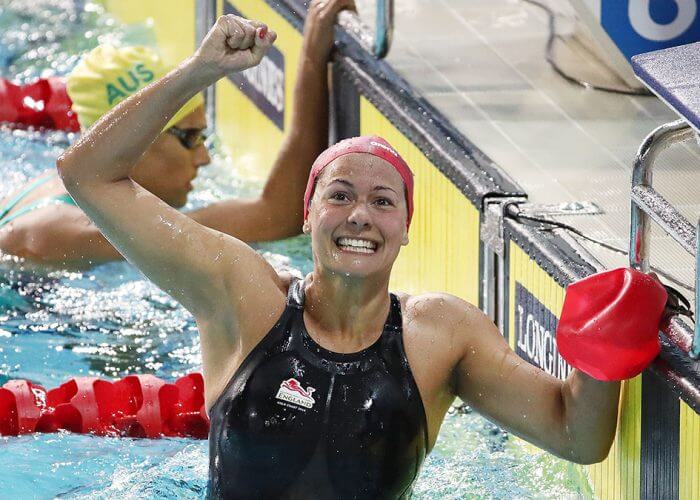
Aimee Willmott: Photo Courtesy: Swim England
Willmott had it all planned out.
A tilt at Tokyo and then retirement before moving into a new phase of life with full-time employment beckoning and beyond that a family with partner Harry Booker.
That all changed on 24 March 2020 when the Olympics were postponed as covid-19 wreaked havoc across the world.
Willmott was rocked although there was a lovely surprise in the form of a marriage proposal days later by Booker.
She was also named athlete representative on the board of Commonwealth Games England on a four-year term.
Willmott weighed things up: in all likelihood if she were to get a job, the two-time European medallist would be home-based so she decided to continue although there were still doubts and questions about what would happen over the coming months.
Willmott spoke over Zoom to girls and young women at clubs across Britain and Ireland as well as Swim England Talent and Swim Ireland.
Willmott told Swimming World:
“Once I’d made the decision to carry on it was strange at first: I was thinking I shouldn’t really be here now, I should be at the next step whatever that might look like but I’m still doing what I was doing before.
“So ISL (International Swimming League) was really good for me to just get away and race and have some down time but off the back of that I struggled – right what is next? Is it the Olympics?
“All of a sudden at that point we were going backwards as a country so I was like – have I carried on for it all to happen all over again? I was just praying that it didn’t.”
So too did it call for a change in mindset: athletes know what they are working towards, each competition a stepping stone to the biggest stage of all, the Olympics.
Willmott had to re-educate herself and rather than focus on the long-term outcome, instead concentrate on the short term, explaining:
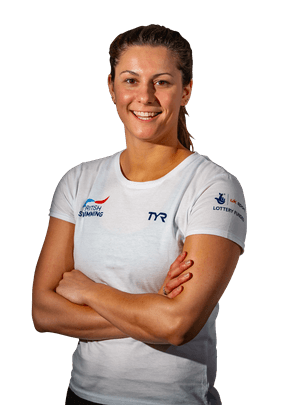
Photo Courtesy: British Swimming
“It’s the first time I’ve ever really done that.
“I’ve gone week by week and think right I’ll just train the best I can and then do the same next week and then try it again next week.
“For me, the age that I’m at, it was strange to be wrapping things up and then open that box again and delve back into all my tricks.
“It has been difficult in terms of that.
“Trying to not look at the news and what’s happening and what isn’t happening, what might happen, what it might look like and just think well all I can do is train so it’s all I’m going to try and do than really worry about what it looks like.
“So it’s been a very different 12 months in terms of my thought processes.
“I’ve just tried to approach it like what can I do in training this week? What is next week? The week after?
“Rather than look too far ahead because I am a bit of a worrier and I do over-think things so the worst thing that I could ever do in this situation is to think of all the what-ifs and the worst-case scenario.”
Advertising: Shop At Swim360




